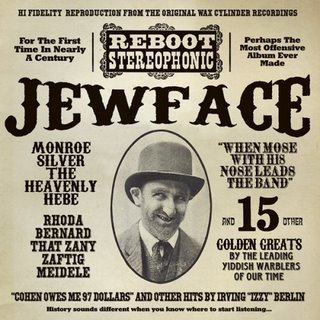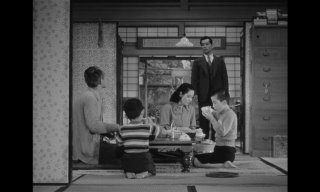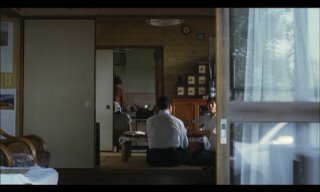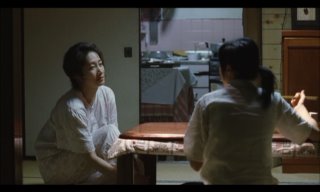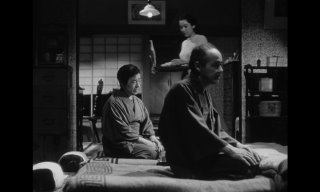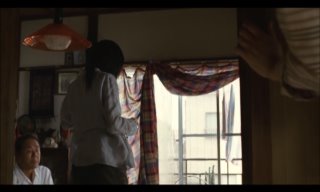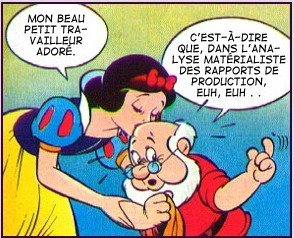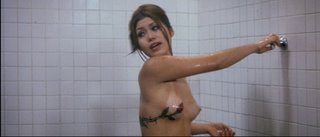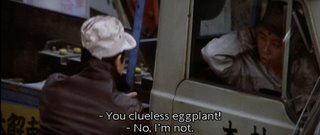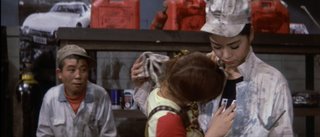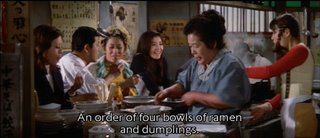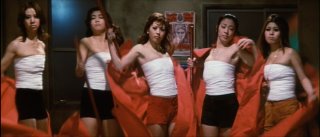I suppose this was supposed to be a liberal film. Lillian Hellman wrote the screenplay from her own play, and there’s no doubt that it’s a bitter satire of rapacious industrial capitalism. The new class of merchants, personified by the Giddens clan (L to R below: Oscar,
But no one watches The Little Foxes for its insights into the shift from agricultural to industrial capitalism. We watch it to see Bette Davis be eeevil, and for cinematographer Greg Tolland’s depth of field. In this shot you have the whole movie, basically: Aunt Birdie gets pushed to the background, Bette Davis sits in the middle, scheming with/against her brothers, and this is all conveyed through staging in depth. And the stairs in the background, which I’ll come back to in a bit.

André Bazin’s big point about staging in depth was that it is more democratic because the audience, when given the opportunity to scan the image at its own leisure, was more involved in constructing the meaning of each shot for itself. Compare this to continuity editing, where the audience is led step by step to the only possible reading of each scene. Ideally, for Bazin, you’d have a lot of shots like the following, where Xan and her father Horace enter the hotel in the background while David scans the newspaper in the foreground. This is one of the more natural looking, least choreographed stagings in the film, and it gives a sense that these characters inhabit a more complex but freer social space.

Compared to this, the schemers are often squeezed tightly into the frame, even though the house is certainly large enough to give them some space.

This works very well to convey information about character and story--their world is menacing and claustrophobic. One other nice example: here various characters are gathered around Horace on his deathbed. We get a shot of (L to R) the doctor, Xan, and the nanny Addie. (Yeah, Addie is shoved to the back. See what I mean by problematic?) The three are united in the frame, just as they are united in their concern for Horace.

Then the camera pans to the left to reveal

The lesson from this is that depth of staging is what you make of it. It’s not necessarily democratic, and it’s not even necessarily less theatrical. Apart from Bette Davis, the most important character in the film is the stairway. It’s a good way to show the hierarchical nature of southern society, and it makes for some dramatic framings.

But compared to the way Renoir can use the camera to show social relations between characters in any setting, inside or out, it seems like a weakness that Wyler has to rely so much on such a heavy-handed symbol.














